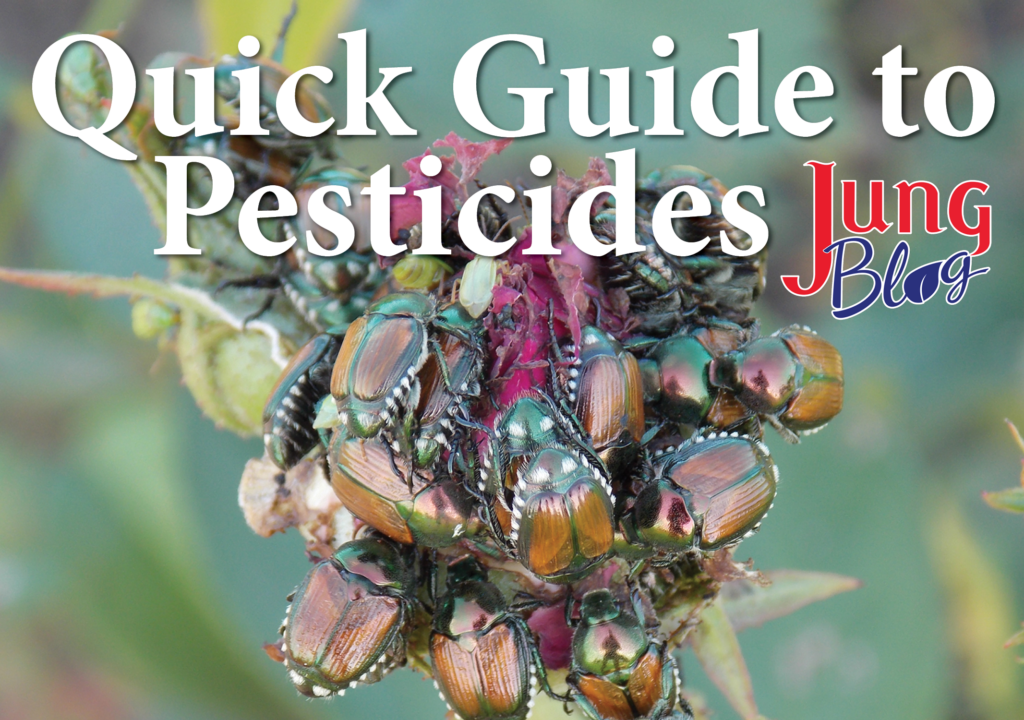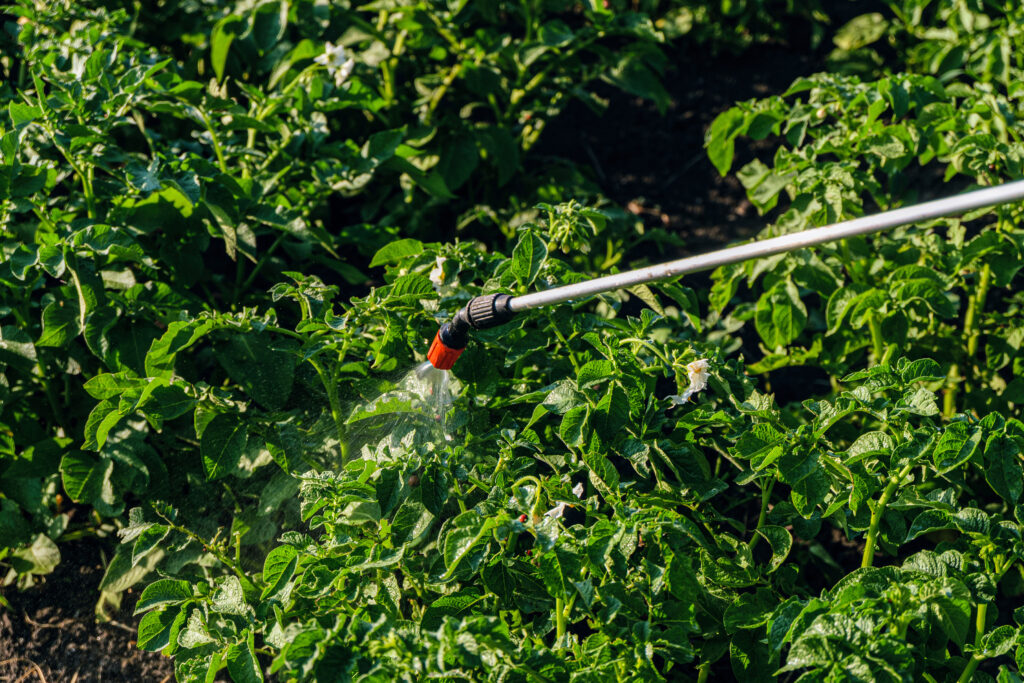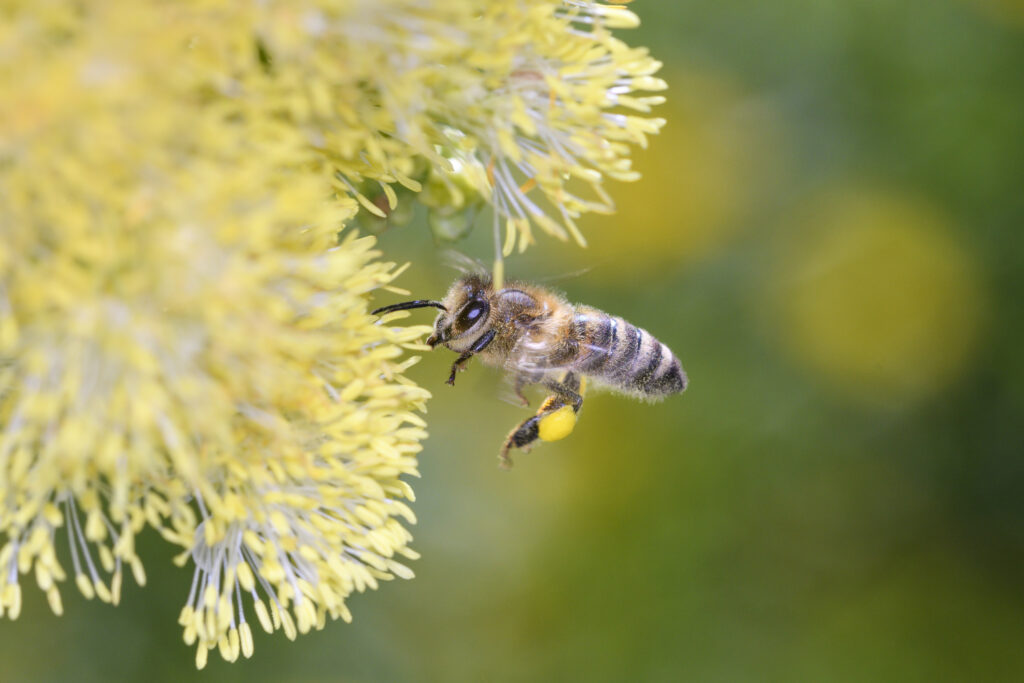
Updated: August 8, 2024
Hey, what kind of bug is that? Knowing the type of insect you are trying to eliminate is the first step to proper pest control. All insects have specific life cycles from egg, to nymph, to adult. The life stage in which they do the most damage might not be when they are most vulnerable to pesticides. Japanese beetles are a perfect example. As adults, they are extremely difficult or nearly impossible to control. They are most vulnerable in their larval life stage as grubs, in the ground feeding on turf grass roots. This is when to best treat them.
Know Your AI & MoA

AI is the Active Ingredient in a pesticide product that will adversely affect the pest. The MoA is the Mode of Action, or how the pesticide works to control the pest. Every gardener should know or become familiar with these two features of a product whenever you pick up a pesticide to apply it. You do not need an expert; you should be the expert. Are you using the most effective product to control the pest in its current life cycle stage? We must all understand that even organic or natural pesticides can adversely affect beneficial pollinators, so knowing when and what to spray is quite important.
Pesticide Effectiveness

Controlling pests properly and effectively boils down to knowing just a few simple things:
- What active ingredient is most effective for what pest?
- When or how often should I apply it?
- What is this product’s potential impact on other insects?
Timing is everything. Again, you must know your bugs. When are these pests most active and least active? How mobile are they? Are they well armored, like beetles? If you are using a concentrate, read and follow the mixing and applications instructions explicitly. If a concentration is too weak, it will probably not be effective, and you have wasted your time, money, and effort. If it is too strong, you can severely damage your plants or worse unintentionally destroy beneficial pollinators. Always READ & FOLLOW THE ENTIRE LABEL!
- What environmental conditions are best for what you are spraying?
- When should you NOT spray? – While it’s windy, or when it’s too hot are good examples.
Instead of asking, “What is the most deadly chemical I can spray?” ask, what is the least toxic product with the highest efficacy? Let’s face it, our gardens need all the pollinators they can get. Honeybees are not the only pollinators we should be protecting. Flies, beetles, moths, butterflies, ants, wasps, bumble bees, and many types of solitary bees like miner bees, cutter bees, carpenter bees, and birds are all excellent pollinators for our garden and orchard crops.
Protecting The Pollinators

As gardeners, limiting the damage to all the beneficial insects should be our biggest priority. Figuring out what insect pest is doing damage and how to best treat them by knowing the active ingredient of a product and its mode of action is the gardener’s responsibility. Ask questions, read, and study to become more aware of what insects are beneficial, which types cause major damage and at what stage during their life cycle they are most vulnerable. This is the best and most effective way to practice proper pest control management in your own garden.
Other Recommended Reading

- Bee Kind Gardening – A Guide To Plant & Pollinator Balance
- 15 Best Plants For Pollinators
- Garden Pests: Japanese Beetles
- Horticultural Oil For Pest Control

At Jung Seed Co, we strive to be your go-to guide for all your gardening needs. Our YouTube channel, The Garden Doctor by Dick Zondag, is where he provides gardening tips for all levels of gardeners. When you need reliable gardening advice, turn to the trusted experts at Jung.
View our new catalog online or browse our website for your gardening favorites. Sign up for our weekly email to receive info on new products, exclusive deals, and specials. Join our Facebook page to discuss all things gardening!
